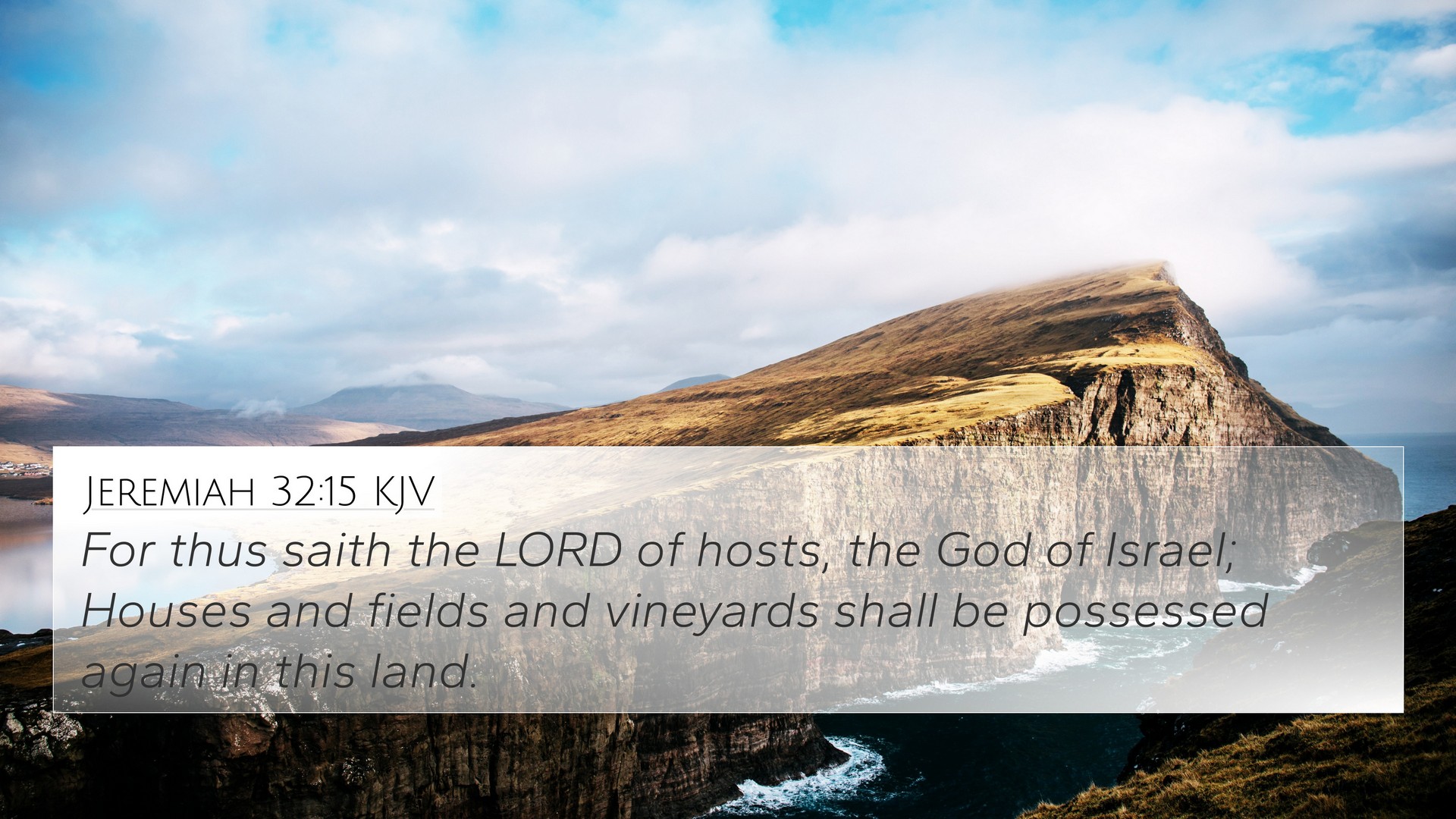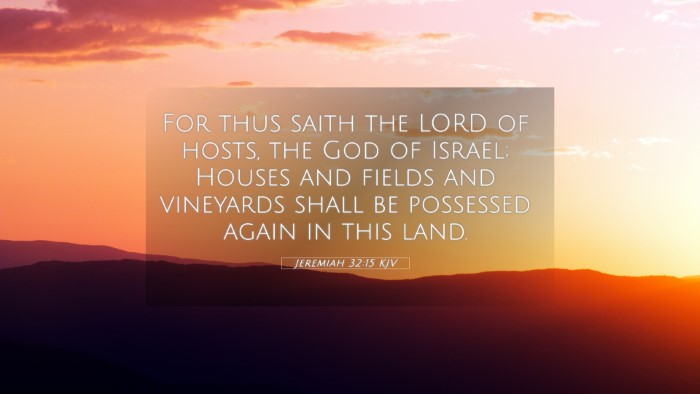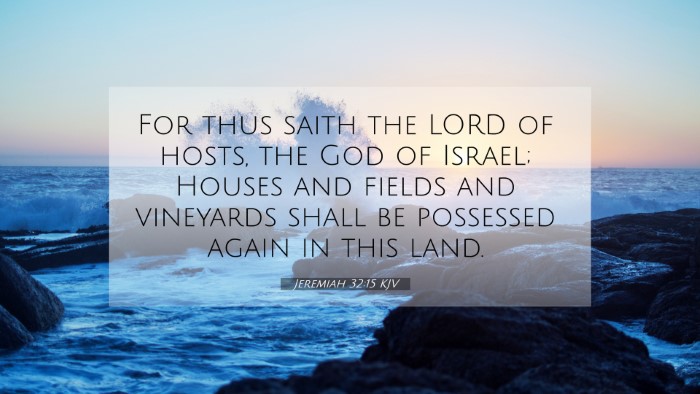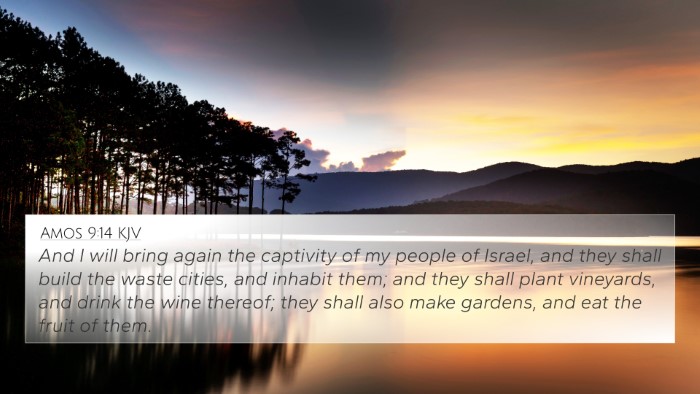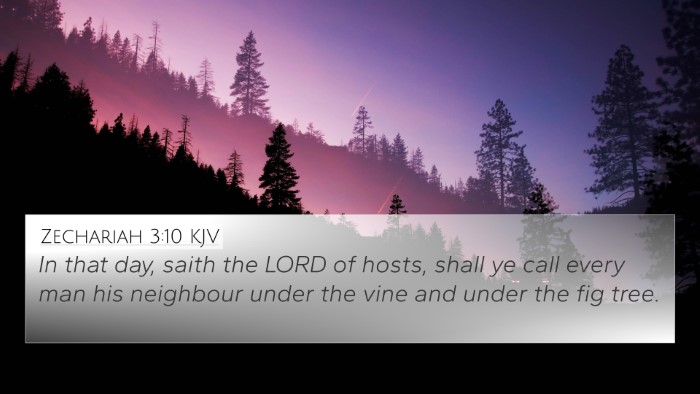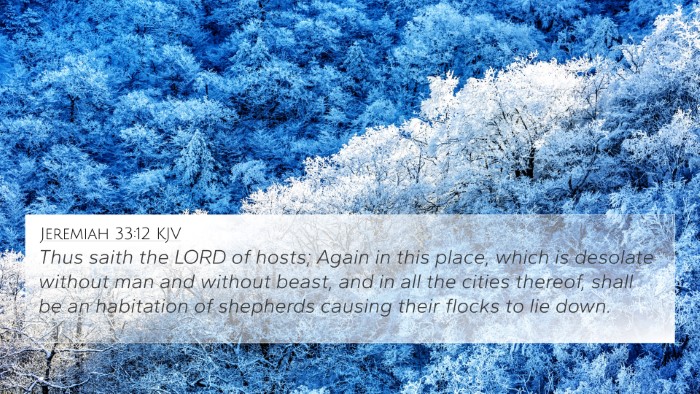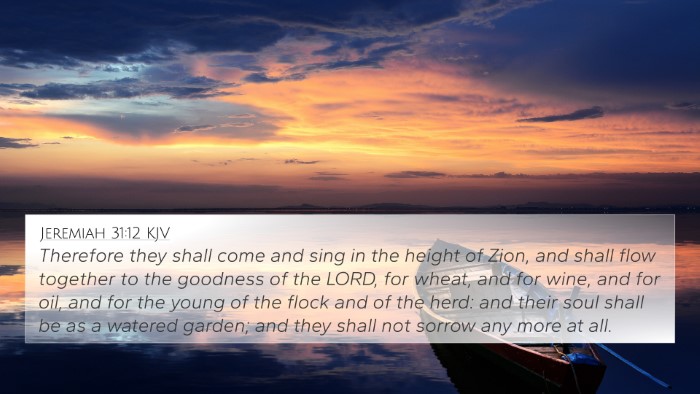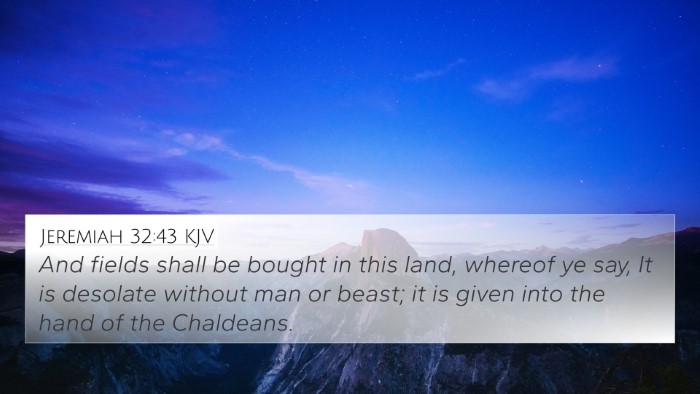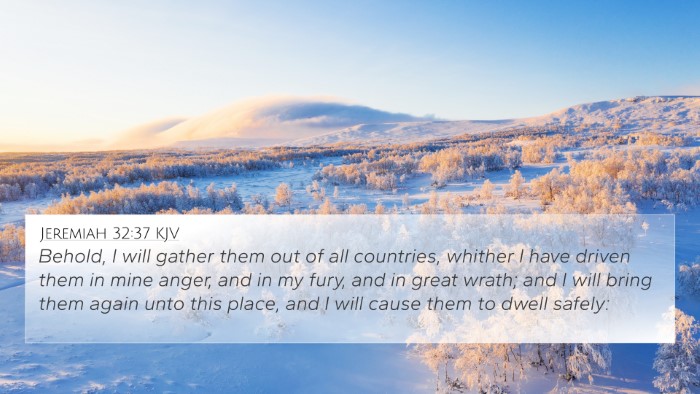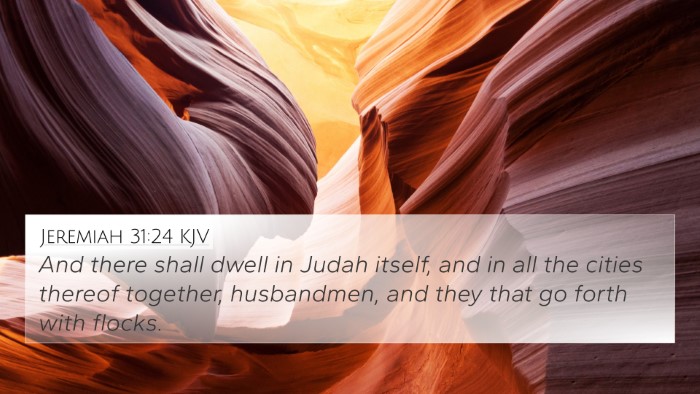Understanding Jeremiah 32:15
Jeremiah 32:15 states: "For thus saith the LORD of hosts, the God of Israel; Houses and fields and vineyards shall be possessed again in this land." This verse occurs in a profound context where God conveys hope amidst despair during the Babylonian siege of Jerusalem.
This verse encapsulates God's promise of restoration and the future hope of possession within the land for His people. Through the lens of public domain commentaries, we can dive deeper into its theological implications and connections to other scriptures.
Key Themes in Jeremiah 32:15
- Restoration: God assures His people that they will reclaim their homes and properties.
- Promise of the Future: The announcement that they can hope for better days amidst present challenges.
- The Faithfulness of God: This reflects God's unwavering commitment to His covenant with Israel.
Commentary Insights
Matthew Henry's Commentary
Matthew Henry emphasizes that this promised restoration is not just about physical properties but signifies a restoration of spiritual connection and divine favor. He highlights that God's assurances provide a basis for faith even when circumstances seem dire.
Albert Barnes' Notes
Albert Barnes elaborates on the historical backdrop, mentioning that despite the current siege, God’s prophetic word stands as a beacon of hope. Barnes insists that such declarations from God encourage understanding that divine plans persist, irrespective of worldly chaos.
Adam Clarke's Commentary
Adam Clarke discusses the specific mention of “houses, fields, and vineyards” pointing to God's intimate knowledge of His people's lives. Clarke underscores the importance of land ownership in biblical culture, which correlates intensely with identity and heritage.
Bible Verse Cross-References
To fully appreciate the richness of Jeremiah 32:15, it is valuable to consider its connections with other Bible verses:
- Deuteronomy 30:5: Discusses the promise of returning to the land and its prosperity.
- Isaiah 65:21-23: Speaks of building houses and planting vineyards, a direct thematic parallel to Jeremiah's assurance.
- Ezekiel 36:10-11: Promises growth and restoration of the land.
- Hosea 2:21-23: Highlights God's promise of renewing relationships and restoring lands.
- Romans 11:26-27: Reflects on God's faithfulness to Israel, promising future restoration.
- Revelation 21:2: The final vision of restoration of all things parallels the hope in Jeremiah.
- Matthew 5:5: "Blessed are the meek, for they shall inherit the earth," resonating with the theme of possession and divine inheritance.
Connecting Themes Across the Bible
Jeremiah 32:15 serves as a pivotal verse that highlights multiple themes consistent in scripture. The concepts of restoration, divine loyalty, and future hope echo throughout both the Old and New Testaments. By engaging in a comparative Bible verse analysis and understanding these Bible verse parallels, one can appreciate the continuity of God's message to His people.
Tools for Bible Cross-Referencing
To effectively explore these connections, you might consider resources such as:
- Bible concordance
- Bible cross-reference guide
- Comprehensive Bible cross-reference materials
- Cross-reference Bible study methods
Conclusion
Jeremiah 32:15 is a powerful indication of God’s promise of restoration. Understanding this verse within its broader biblical context reveals the rich tapestry of God's covenant relationships with His people. By utilizing scriptural cross-referencing, one can uncover even deeper insights and reaffirmations relevant to both current struggles and the eternal hope found in God's promises.
